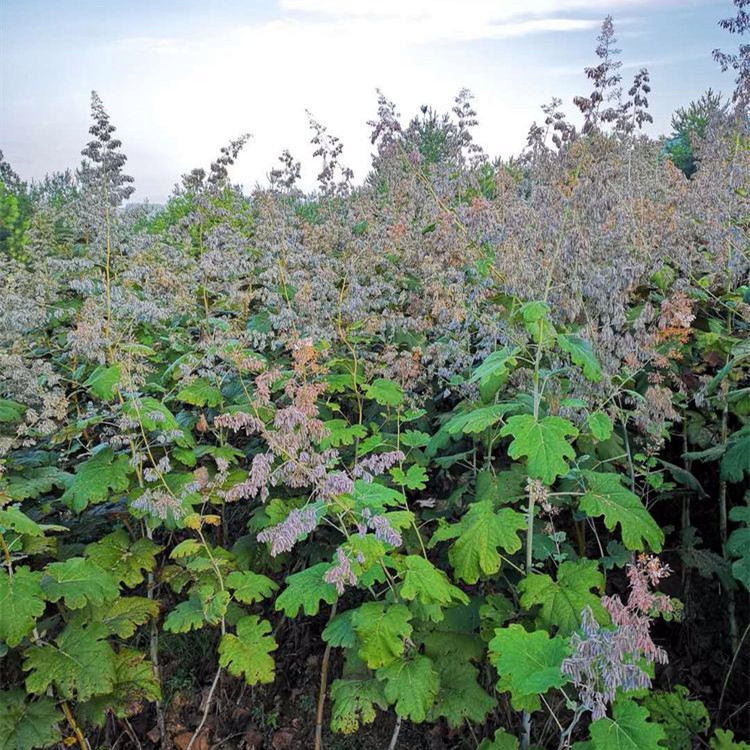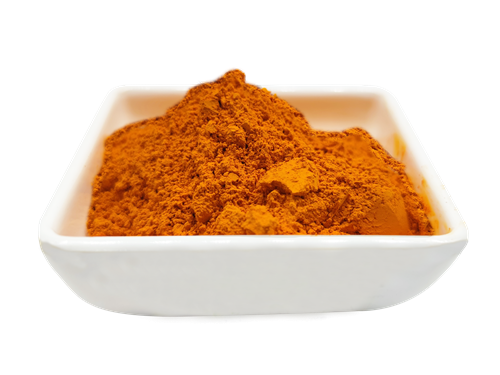Macleaya cordata (Plume poppy) is a perennial bloodroot plant in the poppy family. It has been reported that the main active components of Macleaya cordata are alkaloids such as Sanguinaine, Chelerythrine, proopiate, AIIocryptopine, Bocconine, Berberine and Corysamine. These alkaloids have shown functions of repellent, antibacterial, detumescence and cough suppressant. Modern studies have shown that the Macleaya cordata alkaloids also have good anti-viral hepatitis and anti-tumor effects. The alkaloids extract is widely used in drugs, biopesticides, veterinary drugs and other products, especially as plant-derived pesticides due to its easy degradation, less pollution and resistance.
Alkaloid components in Macleaya cordata are often obtained by solvent extraction, which can be divided into water or acid water extraction method, alcohol solvent extraction method, fat-soluble organic solvent extraction method and other solvent extraction methods. There are also ultrasonic, surfactant and other non-solvent methods. Water or acid water has a wide range of dissolution and strong cell penetration, while alcohol solvents also have good solubility for water-soluble and fat-soluble components, while the total base proposed by fat-soluble organic solvents generally only contains fat-soluble components, without water-soluble alkaloids, and less impurities.
It is reported that the dried root and stem of the plume poppy were extracted with acid water and returned to adsorbed with cation exchange resin and acidified. Then the resin was extracted with organic solvent and the Soxhlet extraction method was used to concentrate and evaporate the organic solvent to obtain the extract. The resin filter paper was wrapped and put into the Soxhlet extractor, which was soaked in chloroform-methanol (2∶1) before Soxhlet extraction. When the extract is close to colorless, a few drops of concentrated hydrochloric acid can be added to the appropriate amount and then reflux extraction, so repeat 3 ~ 5 times until the extract does not contain alkaloids to remove the resin, recover the solvent to get black solid powder with aromatic smell, which is the total alkaloid. After acid water extraction, resin adsorption and Soxhlet extraction, the alkaloid content was 0.965% by silicotungstic acid precipitation method. However, the disadvantage of this method is that there are many complicated steps and long time-consuming, which is not conducive to mass production.
Alkaloids and their salts can be dissolved in methanol or ethanol, so methanol or ethanol is generally used as the solvent to extract alkaloids. Methods: seepage method, impregnation method or heating reflux method. The total alkaloids were obtained by recovering the solvent from the extracted solution under reduced pressure. Our company uses 95% ethanol as the soaking solution, and the resulting extract is distilled by rotary evaporator. The specific method is: respectively the natural air dried plume poppy, stem grinding end and sifted 40 mesh. 20 g of each root and stem powder were weighed and soaked in 200 mL 95% ethanol for a day at normal temperature, respectively, and filtered respectively. Then the residue was soaked in 200 mL 95% ethanol for a day under the same conditions, filtered, and the residue was tested with silicotungstic acid to basically contain no alkaloids. The liquid volume obtained by mixing the two filtrates was as follows: The roots of 340 mL and the stems of 350 mL were respectively distilled to dry by a rotary evaporator.
It is also reported that the method of ethanol heating reflux can get a higher extraction yield. The method is as follows: pulverize the raw plume poppy root into a fine powder, add 8 times the amount of ethanol and heat reflux, then heat filtration, concentrate the filtrate until the ethanol recovery is complete, then add the same volume of water, stir for 5 ~ 10 min and stand until a large amount of precipitation is produced. Discard the supernatant, centrifuge the lower slag, pulverize the centrifuge slag after drying, then add 5 times the amount of ethanol heating reflux reheat filtration, filter slag repeat this process, combine these filtrates cool to room temperature, add hydrochloric acid pH = 2-3, filter precipitation. After the precipitation is dried, 95% ethanol is added to heat reflux for 30 min, and then cooled to room temperature, the filter residue is filtered, and the finished product is obtained after drying and crushing. The content of sanguinarine was 7.34%, chelidonine was 2.41%, and the extraction rate of crude alkali was 14.42%. The disadvantage of this method is that the process is complicated and needs to be carried out under the condition of heating reflux.
Our company has studied the alcohol extraction method, Soxhlet extraction method and acid water extraction method at room temperature, and found a better way to extract Macleaya cordata alkaloids. At the same time, alkaloids were also extracted by Soxhlet extraction method (direct use of Soxhlet extractor can reduce the experimental procedure and equipment). The extraction rate of Macleaya cordata root in each method was significantly higher than that of Macleaya cordata stem, indicating that the content of alkaloids in Macleaya cordata root may be higher than that in the stem. At present, the highest extraction rate of Macleaya cordata alkaloids is alcohol extraction methods, which is also the most commonly used method to provide Macleaya cordata alkaloids supplied by Rainbow Biotech, that is where our price advantage lies.
- Dandelion Extract: What It Is, Benefits, Uses and Side Effect - April 23, 2024
- Is Berberine Extract Help For Weight Loss? - April 11, 2024
- Why Is Pysllium Husk Powder A Popular Meal Replacement Ingredient? - April 3, 2024




